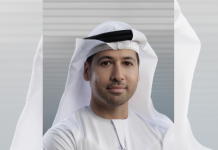KPMG’s CFO Advisory Services that was recently launched in Oman provides specialised management consulting solutions for CFOs in areas such as finance transformation, working capital enhancements, budgeting and forecasting, among others.
Post-merger finance integration and finance transformation are among the key tools of KPMG’s CFO Advisory Services that was launched in Oman recently.
KPMG in Oman offers an integrated and holistic approach for finance transformation; addressing elements of the operating model, people, process, technology, risk and compliance with the aim of generating greater effectiveness, says Ahmed Tufail Al Rahman, partner Audit, KPMG Oman.
“We enable organisations that have come together through an acquisition or merger to realise benefits through developing a target operating model, helping eliminate structural and process redundancies, conducting skill assessment and fitment analysis, recommending and helping implement technology enablers for efficiencies,’’ says Nitin Kini, partner, financial management advisory services, KPMG Oman.
KPMG uses Lean and Six Sigma techniques in aligning finance function capability to the finance strategy. It also helps its clients to achieve an efficient working capital structure and facilitates release of cash to fund additional growth initiatives. The CFO Advisory Services was launched at the CFO focused forum recently. The theme of the event was “CFOs: Partnering Better with Business” and it was attended by CFOs and select CEOs from the leading companies in Oman. The forum presented an opportunity for the CFOs to come together and discuss the challenges and what some of the leading companies are doing in the region to navigate this dynamic business environment.
Khalid Ansari, partner-in-charge KPMG Oman, said, “The hydrocarbon based economy has faced challenges in the past and has come out stronger each time. The present environment also presents an opportunity to further strengthen the fundamentals so that we come out stronger.”
There were two panel discussions scheduled that focused on the role of the finance function in navigating through challenging times and how can this role evolve to better partner with business. It was an interactive event where the CFOs shared their experiences with each other in a networking session.
In the first panel session, the panelists laid stress on revenue consolidation and cost management. Janaab Sayyid Mohamed Al-Said, president and group CEO IBD Group and VEC said, “Cost management does not and should not mean cutting down the workforce. This type of cost cutting is a short term approach and does not stand the organisation in good stead in the long term. On the other hand, management tools such as lean help organisations to streamline operations and cut wastage. This not only helps save costs but strengthens the organization’s framework to sustain in the long term.” Importance of Lean principles in finance was discussed where Haifa Al Khaifi, finance director with PDO, shared her experience, “We have been following the Lean approach for the past six years. This is now part of the culture in which daily business is conducted and has resulted in quantifiable bottom line improvements. Programmes such as ‘Every Rial Counts’ are a way to establish financial prudence and build a culture of saving.” The emerging theme that came out from the discussion was that management tools such as Lean can be applied in finance function to realise tangible savings and is a good practice for realising efficiency gains. Other distinguished panelists included Hamid Hamirani, economist, Ministry of Finance, Andrew Long, CEO, HSBC Bank Oman, Majid Al Toky, resident managing partner, Trowers and Hamlins Oman.
The second panel focused on how the Finance function can partner with business to take better decisions. Panelists shared various experiences in their organisations of how different aspects such as the operating model and reporting lines play a pivotal role in the success of such an initiative. Haifa Al Khaifi commented, “We have laid out a clear finance function structure where regular processes have been centralised.” Dynamics between the finance function and business was discussed when Dr Amer Al Rawas, Group CEO at Tasneea Oil & Gas Technology, shared his experience,” CFOs play a pivotal role in indicating the financial health of the company. They should strive to add value to the business, not only focusing on performance of the business, but also on decision enablement.” The panel discussed the importance of business understanding for finance professionals to be accepted as business partners. Other distinguished panelists included Amran Al Marhubi, technical director, PDO, Amer Al Jabri, CFO Oman Gas Company.
Audience interacted with the panelists during the question and answer session. Responding to a question on the optimal reporting structure for a group company, Andrew Long, CEO HSBC Bank Oman, said, “In the global and complex business environment, with diverse business needs, leaders should be comfortable operating in a matrix structure with reporting lines to multiple stakeholders, if they are to successfully meet the demands of the role.”
Transforming organisations
To report this post you need to login first.






